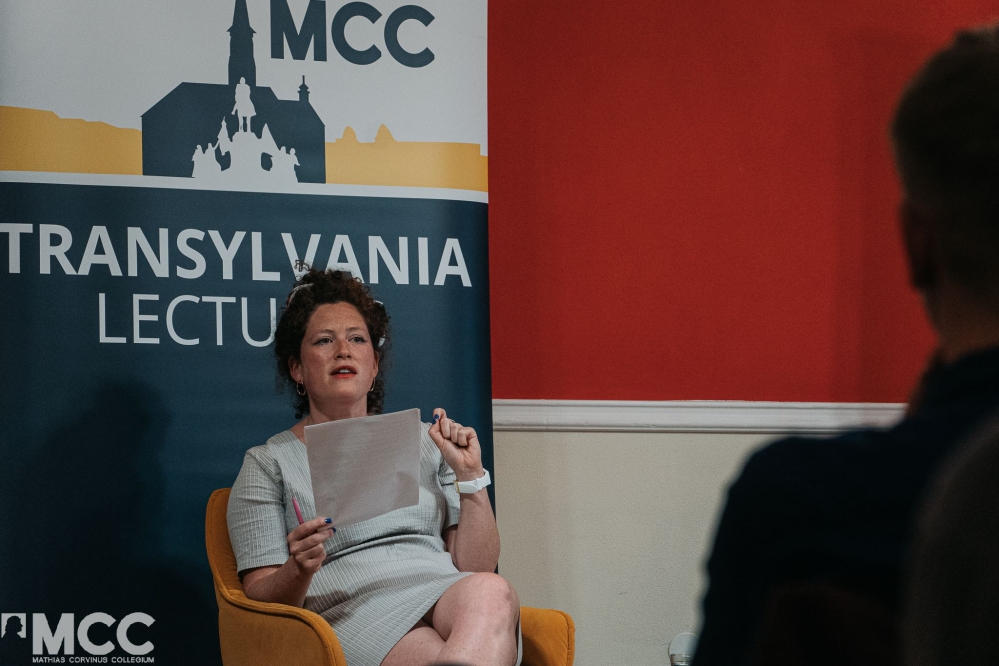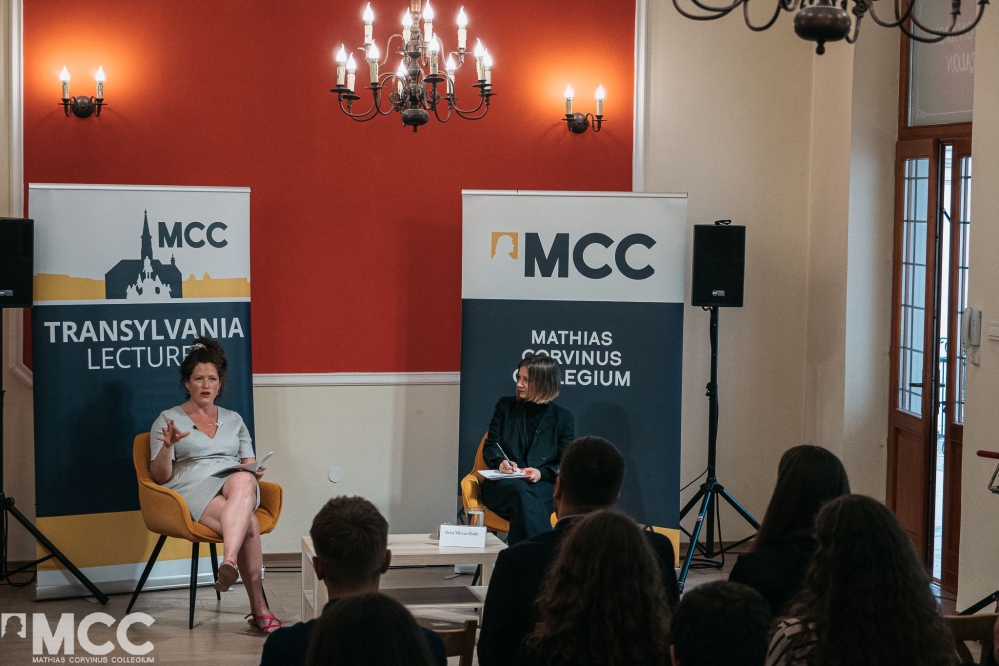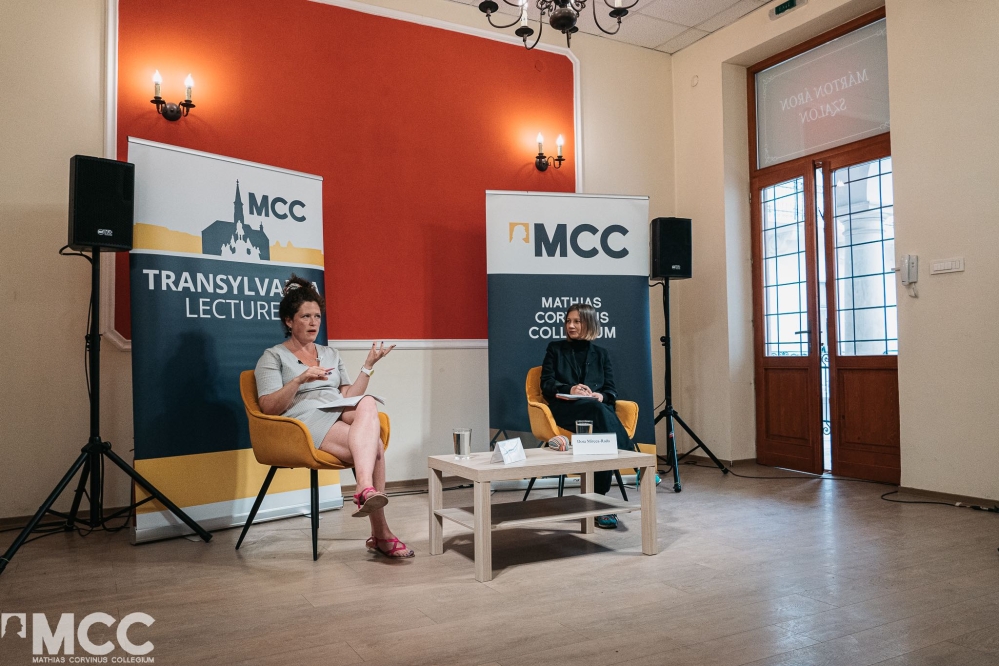Reading time: 4 minutes
Participants discusses the reasons behind the growing division in politics and social norm at the latest Transylvania Lectures event. At the invitation of the Mathias Corvinus Collegium (MCC), British historian, writer and broadcaster Zoe Strimpel visited Cluj-Napoca on 15 June.
Zoe Strimpel drew on her experience as a journalist to discuss the topic in Cluj. She is a writer, broadcaster and historian of gender in modern Britain. She is a columnist for the Telegraph and the Jewish Chronicle, and writes regularly for the Spectator and Unherd. She is proudly globe-trotting and rootless: born in London, she grew up in America, finished high school in Hampshire, UK, and studied English at Cambridge, followed much later by an Mphil in Gender Studies at Cambridge and a PhD in modern British history at Sussex. She is the author of three books about gender and dating. The audience was greeted by Szidónia Sándor, a student of MCC's University Program. The moderator of the discussion was Dora Mircea-Radu, communications specialist.
In recent years, as the culture war in the West has become more and more extreme, Zoe Strimpel has felt that she does not belong to any one tribe, that is, she cannot fully identify with the worldviews of either the left or the right. She received a lot of feedback on her writing from readers who also felt out of place. Her main point was that she is confused by the changes in both left and right, and the disappearance – as they move towards identity politics on the left and populism and conspiracy on the right – of decency and a liberal middle ground. She thinks that we need to return to that moderate center, which supports rationality, science, basic women's rights like abortion and contraception, and resists conspiracy (often anti-Semitic), and harmful distortions of reality.
The mood has changed on both sides, she pointed out, adding that in recent decades political parties have also begun to align themselves more and more on cultural and moral issues. This cultural division has led to a situation where everyday life is organised along these lines, from behaviour to TV viewing habits to dating, and the two major camps are in constant conflict with each other, with no real debate between the parties. We no longer juggle conflicting, diverse ideas, but have to go along with one side's grand ideological package. And when this 'mega-identity' is challenged, people become resentful and even mock those who choose the middle way, explained Zoe Strimpel.
According to the speaker, the Western culture war, identity politics and gender issues, which seem distant and intangible to Transylvanians, are deeply embedded in the public consciousness, with real effects on politics, media and culture. In London, for example, the theatre scene has become terrible because ideological issues have taken over. Also some publishers select their writers according to the social background of the author rather than the works they want to publish. It kills creativity, and forced ideologising only distances people from really serious issues such as racism or equality.
However, the other side is no better, with social media making conspiracy theories more prevalent than ever, and many people became more susceptible to them during the pandemic. People tend to join groups that reflect their own way of thinking, which is why social media is particularly dangerous, because it sucks you into bubbles where you only see things you agree with. Conspiracy theorists gather in huge groups that attract millions of followers, and this gives them real influence and power. Reflecting on this, moderator Dora Mircea-Radu added that the far-right political party AUR's victory in the last Romanian elections was also met with surprise by many, as the party had built up a huge following base in such isolated circles.
In the course of the discussion with the audience, it was pointed out that, although these issues are mainly of concern in the anglosphere, they are also increasingly present in Central and Eastern Europe, especially among schoolchildren, who are more active on social media and more susceptible to Western influences.


